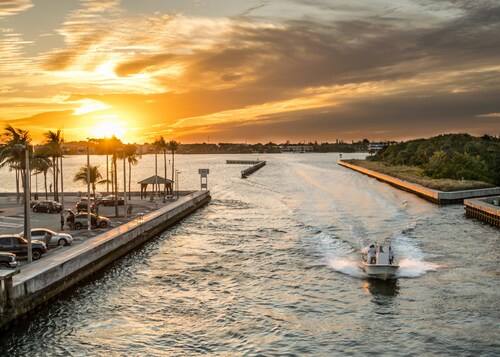
Greywater systems are an eco-friendly solution for water conservation. They allow homeowners to reuse water from baths, showers, and washing machines for irrigation. These systems are growing in popularity in Florida, but the rules around their use can be confusing. Following Greywater discharge regulations is crucial for safety and compliance. This article will answer the most common questions about reused water compliance.
1. What Is Greywater, and How Is It Different from Other Wastewater?
Greywater is wastewater from bathing, washing dishes, and laundry, excluding toilet waste. Following the grey water discharge regulations in Florida ensures safe and effective use. Unlike blackwater, which contains harmful bacteria, greywater is relatively clean. It can be reused for non-drinking purposes like irrigation.
Greywater must be treated and used properly to prevent contamination. Greywater is a valuable resource when treated well. The state officials encourage residents to use reused water for conservation, but it must meet safety standards. These rules help protect public health and the environment.
2. Are Greywater Systems Legal in Florida?
Yes, greywater systems are legal here. The state supports water conservation, which can help reduce freshwater use. However, homeowners must follow the state guidelines for system installation and operation, which are set by the Florida Department of Health (DOH).
Greywater systems must be installed by professionals and inspected to ensure they meet safety standards. Property owners must ensure their systems comply with state regulations. This might involve obtaining permits or passing inspections. Following these guidelines ensures the system remains safe and effective.
3. What Are the Significant Greywater Discharge Regulations in Florida?
Florida has specific discharge regulations to ensure safety, and greywater should be used within 24 hours to prevent bacteria buildup. It must be filtered and treated before being released into the environment. The water should not contact people, pets, or wildlife directly.
Make sure you are meeting these requirements:
- Greywater must be discharged into a subsurface irrigation system
- It cannot be used for drinking or cooking
- Proper filtration is required to remove chemicals and soap
4. How Do You Install a Greywater System?
Installing a greywater system requires careful planning. A licensed plumber or professional should install it. The system needs filtration devices and proper pipes to prevent contamination. Florida’s guidelines also require an inspection before it is used.
Regular maintenance is important to keep the system functioning well. Homeowners should check for blockages, leaks, and clean filters regularly. Please follow local regulations, as some areas may have additional requirements.
5. What Are the Environmental Benefits of Such Systems?
Greywater systems offer many environmental benefits. They help reduce the use of freshwater, especially in places where water can be scarce. These systems also reduce the strain on local water supplies. Additionally, recycled water can be used for irrigation, helping homeowners save money on their water bills. Greywater systems also help reduce wastewater sent to treatment plants. Residents can contribute to water conservation efforts by reusing the water.
Finding Expert Help for Greywater Systems
If you’re considering installing a greywater system, it can be helpful to seek professional guidance. Many experts specialize in water conservation and greywater systems. These professionals can assist with system design, installation, and maintenance. They ensure that your system complies with local and state regulations, helping you avoid potential issues.
Additionally, they can offer valuable advice on maximizing the efficiency of your system, ensuring that it works optimally while benefiting the environment. Reaching out to a trusted professional can make the process smoother and ensure that your investment in a system is both effective and long-lasting.
To fully benefit from greywater systems, residents must follow the grey water discharge regulations in Florida. Proper installation, maintenance, and compliance with treatment guidelines are vital factors for ensuring these systems operate efficiently and safely. Staying informed about local and state requirements will help property owners avoid potential issues, thus guaranteeing that greywater use remains a safe, sustainable option for everyone.




